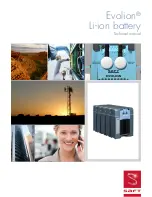
Storage position
Will not get lost. Always ready to use.
Extended position
Note: Pressure, when handle is
squeezed, holds adapter firm. Will not
slip back.
Thrust on terminal
Note: Clamp is released and spring
tension holds adapter firm.
22.
LENGTH OF CHARGE
a.
Test the battery for state of charge. Do not charge if it is over 75% charged or the battery is determined to be defective.
b.
Set beginning amps charge rate for size of battery and state of charge per charts
c.
Charge for length of time per charge,
d.
Discontinue charge when the specific gravity of electrolyte reaches 1.260 or above. A temperature compensating hydrometer should
be used for this reading. Discontinue charge if the battery begins to gas excessively or when the temperature of the electrolyte
reaches approximately 120
E
F. Do not overcharge batteries. Overcharging results in excessive water loss and eventual damage to
the battery.
ASSEMBLY
INSTRUCTIONS
Attach the handle to the charger using the four screws provided. Attach the front leg to the base with the four hex head screw provided. To
attach wheels and axle to the base, tap one axle nut onto the axle with a hammer, slide one wheel onto the axle with the whitewall facing out,
place one washer onto the axle, Push the axle through the base, place washer and wheel on opposite side. Tap axle nut onto the axle with a
hammer.
OPERATING INSTRUCTIONS
CAUTION
- This battery charger must be fully assembled before operating. Failure to do so may result in risk of injury.
USE OF INSTRUMENT PANEL:
The MINUTES CHARGE timer has an OFF position, a CONTINUOUS CHARGE position and a timed charge range
from 0 to 90 minutes.
a.
OFF
- Always make sure the timer is in the OFF position before connecting or disconnecting the clamps from
the battery. The charger will not charge with the timer in this position.
b.
CONTINUOUS CHARGE
- This position is used for slow charging or parallel charging and will not turn the
charger off. Do not use this position for fast charging.
c.
0 to 90 MINUTES TIMED CHARGE
- The timer will automatically turn the charger off at the end of the pre-set
charging time.
d.
VOLTS/AMPS CHARGE SWITCHES
- These switches are used to regulate the output voltage and current of the
battery charger.
BATTERY VOLTAGE
6
12
24
INITIAL CHARGE RATE SETTING
AMPS CHARGE
VOLTS CHARGE
LO
6V
LO
12V
LO
24V
TO CHARGE BATTERIES
Make connections to the battery per the instructions in preceding section of this manual. Determine the battery voltage and set initial charge
rate settings per chart. Turn the timer on. If a higher rate of charge is desired, turn the AMPS CHARGE switch to the appropriate 2, 3 or HI
position. Always return the AMPS CHARGE switch to LO position be fore advancing the VOLTS CHARGE switch.
PARALLEL CHARGING
This charger may be used to parallel charge up
to 10 batteries with a bus bar kit, or by using a
minimum 6AWG gauge booster cables to
connect the batteries together in parallel.
CAUTION:
Do not connect 6 and 12 volt
batteries in parallel with each other.






















